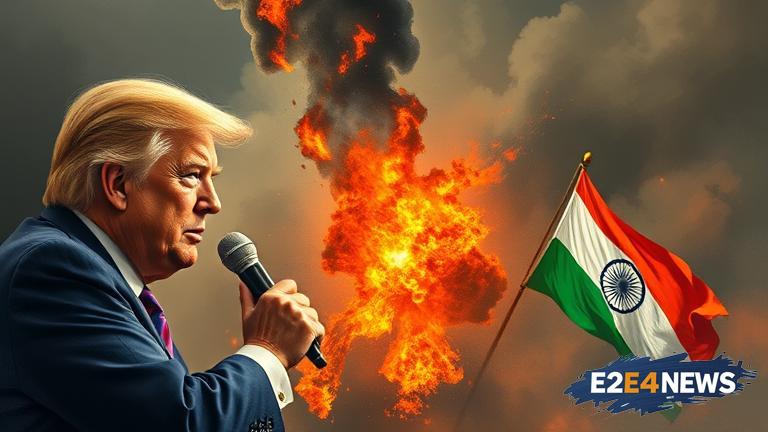The Trump administration has announced a plan to impose a 50% tariff on India, citing the country’s failure to provide equitable access to its markets. The move is seen as a significant escalation of trade tensions between the two nations, with the US seeking to pressure India into making concessions. The tariff, which could be imposed as early as next month, would affect a wide range of Indian goods, including textiles, pharmaceuticals, and agricultural products. The US has long been critical of India’s trade practices, which it sees as unfair and restrictive. The Trump administration has been seeking to renegotiate the terms of trade between the two countries, but so far, little progress has been made. The deadline for trade negotiations is fast approaching, and the US is seeking to use the threat of tariffs to extract concessions from India. The Indian government has responded to the US move by saying that it will take all necessary steps to protect its interests. The trade tensions between the US and India have been building for some time, with the US seeking to reduce its trade deficit with the country. The US has also been critical of India’s decision to impose tariffs on US goods, including Harley-Davidson motorcycles and bourbon whiskey. The Indian government has argued that its tariffs are necessary to protect its domestic industries, but the US sees them as unfair and restrictive. The trade tensions between the two nations have significant implications for the global economy, with both countries playing important roles in international trade. The US is India’s largest trading partner, and the country is heavily reliant on US imports. The imposition of tariffs would likely have a significant impact on Indian businesses, particularly those in the textiles and pharmaceuticals sectors. The Indian government has been seeking to diversify its trade relationships, including with countries such as China and the EU, but the US remains its largest trading partner. The trade tensions between the US and India have also been influenced by the country’s decision to purchase oil from Iran, which is subject to US sanctions. The US has been seeking to pressure India into reducing its oil imports from Iran, but the country has so far refused to comply. The trade tensions between the two nations have significant implications for the global economy, with both countries playing important roles in international trade. The US and India have a long history of trade cooperation, but the current tensions threaten to undermine this relationship. The Indian government has been seeking to negotiate a trade deal with the US, but so far, little progress has been made. The deadline for trade negotiations is fast approaching, and the US is seeking to use the threat of tariffs to extract concessions from India. The trade tensions between the US and India have significant implications for the global economy, with both countries playing important roles in international trade. The US is seeking to reduce its trade deficit with India, which it sees as unfair and unsustainable. The Indian government has argued that its trade practices are fair and equitable, but the US sees them as restrictive and unfair. The trade tensions between the two nations have significant implications for the global economy, with both countries playing important roles in international trade. The imposition of tariffs would likely have a significant impact on Indian businesses, particularly those in the textiles and pharmaceuticals sectors. The Indian government has been seeking to diversify its trade relationships, including with countries such as China and the EU, but the US remains its largest trading partner.
